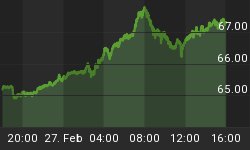In 2014, Congress passed a law allowing distressed multi-employer plans to reduce benefits for retirees if it would improve the solvency of the fund.
The Central States Pension Fund, which handles the retirement benefits for current and former Teamster union truck drivers across various states applied for reductions under that law.
Currently the plan pays out $3.46 in pension benefits for every $1 it receives from employers. That's a drain of $2 billion annually.
If benefits are not cut, the fund may go broke as soon as 2025.
Please consider One of the nation's largest pension funds could soon cut benefits for retirees.
More than a quarter of a million active and retired truckers and their families could soon see their pension benefits severely cut -- even though their pension fund is still years away from running out of money.
Within the next few weeks, the Treasury Department is expected to announce a crucial decision on whether it will approve reductions to one of the country's largest multi-employer pension plans.
The Central States Pension Fund, which handles the retirement benefits for current and former Teamster union truck drivers across various states including Texas, Michigan, Wisconsin, Missouri, New York and Minnesota, was the first plan to apply for reductions under the new law.
Like many other pension plans, the Central States Pension Fund suffered heavy investment losses during the financial crisis that cut into the pool of money available to pay out benefits. While the stock market has recovered since then, the improvements were not enough to make up for the shortfall that grew as the number of companies contributing to the plan declined and the number of people retiring and collecting benefits increased, said Thomas Nyhan, executive director of the Central States Pension Fund.
If nothing is done, the fund could become insolvent by 2025, said Nyhan. And because of its size, the plan could overwhelm the Pension Benefit Guaranty Corporation, the insurance agency meant to shore up private pension funds, if it went under, Nyhan said.
The Central States Pension Fund pays out $2.8 billion a year in benefits, which would be reduced if the plan became insolvent. By comparison, the PBGC fund that backs multi-employer plans has roughly $2 billion in assets and is also projected to be insolvent by 2025.
"This was a very hard decision, a gut-wrenching decision," Nyhan said, adding that he feared not taking any action could leave retirees with no pension at all. "It's not a question of if there are going to be cuts. The question is where and when."
Out of the 10 million workers and retirees covered by multi-employer pension plans, roughly 1 million people are in plans that could run out of money over the next two decades, according to estimates from the PBGC. Already, three other pension plans that pay benefits to truck drivers and ironworkers have applied to the Treasury to have their pension benefits reduced.
The proposal introduced in September by Central States would cut benefits for current workers and retirees by 23 percent on average, though exact amounts would vary based on people's age, health status and where they worked.
Public vs. Private Pensions
Unlike the plight of public union workers, especially those in the Chicago Public School System, I have some sympathy for these guys.
Still, the only thing that makes any sense is to reduce the benefits.
What Nyhan said about the Teamsters, is eventually going to apply to corrupt, broken pension systems like those in Illinois. "It's not a question of if there are going to be cuts. The question is where and when."
The sooner public unions understand that simple fact the better it will be for all around.
Unions will voluntarily reduce benefits or it will be done to them in bankruptcy court.
Reforms Needed
Illinois desperately needs reforms of all kinds.
- Legislation that would allow municipal bankruptcies
- Repeal of prevailing wage laws that drive up costs of city services
- Right to work laws
- Worker's compensation reform
- Unemployment insurance reform
I applaud governor Bruce Rauner's insistence there must be reform before he approves any increase in taxes.
Rauner needs to hold out until Chicago mayor Rahm Emanuel begs House Speaker Michael Madigan for a bankruptcy bill.
Meanwhile, instead of picketing Washington DC for more money, the Teamsters ought to be picking the Fed for it's inflationary policies that contributed to this mess.
It's tough to meet plan assumptions of 7-8% annually when bonds yield 2% or less.















